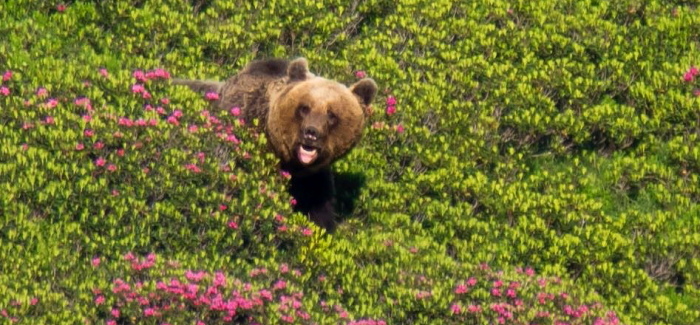NON AUX OURS! No to the bears! You'll no doubt see these words spray painted on roads and on buildings throughout the central Pyrenees. It's fair to say that the rejuvenation of the brown bear population in the Pyrenees is a controversial subject and not everybody is as delighted or excited by their presence as we are. So what's the deal? The history of the brown bear in the Pyrenees Brown bears (Latin name Ursus arctos) have always existed in the Pyrenees. They have however had a chequered history. In the past they have been hunted for their skins and young cubs were captured and trained to perform for a curious public. As the 20th century progressed, man's actions started to affect a huge part of the bear's territory. The development of mines in the mountains and the creation of transport links through the mountains and valleys were the main culprits, forcing the bear to seek alternative havens. Hunting also continued apace. By the 1940s, the Pyrenees were home to France's last remaining bear population. By 1954 just 70 native Pyrenean brown bears were scattered across the Pyrenees. By the 1990s, the number of brown bears in the Pyrenees had dwindled to dangerously low levels. The reintroduction of brown bears in the Pyrenees A reintroduction programme supported by the French Government and with EU financial support was launched in 1996. Three healthy brown bears from Slovenia were released in the central French Pyrenees in an attempt to regenerate the waning population of native Pyrenean brown bears. The programme was however met with resistance, especially from farming communities who feared for their livestock that roam the high mountain pastures (known as estives) in the summer months. A generous compensation package was put in place to compensate farmers for the loss of ...
NON AUX OURS! No to the bears! You’ll no doubt see these words spray painted on roads and on buildings throughout the central Pyrenees. It’s fair to say that the rejuvenation of the brown bear population in the Pyrenees is a controversial subject and not everybody is as delighted or excited by their presence as

